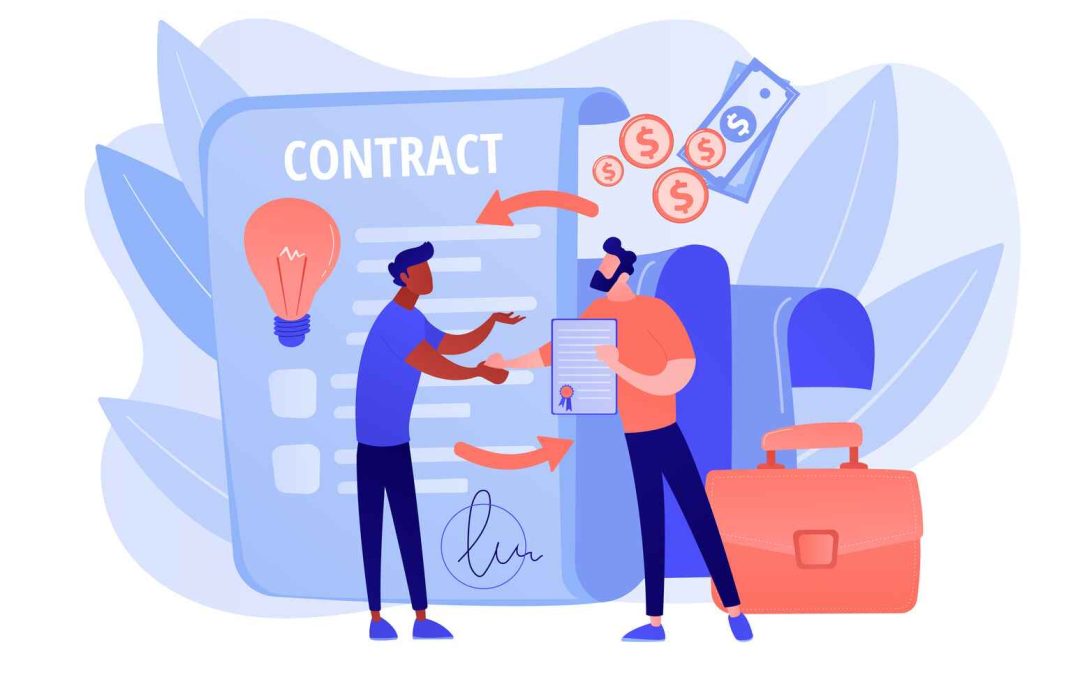Procurement management is the most important part of any business since it makes it possible to get goods and services quickly, cheaply, and of high quality. A well-run procurement system makes sure that businesses get the goods and services they need while following all legal, financial, and operational rules. Procurement contracts are a key part of this process, and they need to be managed carefully to lower risks, speed up processes, and make sure that all rules are followed. This post will show you the most important actions to take while handling procurement contracts. It will also look at the best ways to improve your procurement processes.
Getting to Know Procurement Contracts
What are contracts for procurement?
A procurement contract is a legal agreement between a buyer and a seller. It lists the duties, terms, and conditions of both sides. This contract covers the whole process of buying something, from the first request for proposal (RFP) to the last payment. To run a business well, it’s important to know all the details about procurement contracts so that you can stay within the law and get the best results when buying goods or services.
There are different types of procurement contracts, such as fixed-price contracts, time and materials contracts, and cost-reimbursement contracts. Depending on the sort of deal and the relationship between the buyer and seller, each type of contract has a different purpose.
Important Parts of a Procurement Contract
A procurement contract needs to have a few important parts in order to be managed well:
Terms & Conditions: The basic agreement that covers delivery dates, payment terms, penalties for not following the rules, and warranties.
The scope of work is a full description of the goods or services being bought and the standards of performance that the provider must meet.
Pricing and Payment Terms: Clear information about prices, when payments are due, and any discounts or rebates that may be available.
Liability and Risk Management: Lays out what each party is responsible for in the event of delays, damages, or disagreements.
Dispute Resolution: Explains how disagreements will be settled during the contract’s length, such as by mediation, arbitration, or going to court.
How to Handle Procurement Contracts in the Best Way
To make sure that procurement runs properly and that all rules are followed, good contract management is essential. The steps below show how to manage procurement contracts in a smart and effective way.
1. Writing and negotiating contracts
- Writing the agreement is the first stage in handling procurement contracts. This step is very important since it lays the groundwork for the whole procurement process. It’s crucial to make sure that both sides completely understand their responsibilities and what they expect during negotiations.
- When writing contracts, use straightforward wording to avoid confusion.
- Talk about possible problems up front, such late deliveries or worries about quality.
- Talk about prices and terms that are fair for both sides.
- Companies can avoid a lot of typical procurement mistakes by taking the time to write and negotiate contracts correctly.
2. Use software for managing contracts
- In today’s digital world, managing procurement contracts by hand is slow and easy to make mistakes. Contract management software makes the whole process of managing contracts easier by automating it.
- Using contract management software has various benefits, such as storing documents in one place for convenient access.
- Automatic reminders for important contract deadlines and dates for renewal.
- Working together with suppliers and vendors in real time.
- Using this technology can make procurement procedures much easier and more efficient by cutting down on the amount of work that needs to be done.
3. Keep an eye on how the contract is going
- Once the procurement contract is signed, it’s important to keep an eye on how well both sides are doing. This means making sure that delivery times, quality control, and payment deadlines are all being met.
- The best way to keep an eye on how well a contract is being carried out is to have regular performance reviews with vendors.
- Keep an eye on milestones to make sure goods or services are delivered on time.
- Key Performance Indicators (KPIs) are a good way to monitor how well a provider is doing.
- You can make sure that the contract requirements are being followed and take action as necessary by keeping an eye on things regularly.
4. Managing and lowering risks
- There are always dangers involved in procurement contracts, like delays in delivery, not following the rules, or disagreements over payment. It is very important to manage these risks well in order to keep things running smoothly and prevent making expensive blunders.
- Risk Mitigation Strategies: Include fines for late deliveries or bad work.
- Make a clear mechanism for settling disputes.
- Have a backup plan ready in case of unexpected problems or emergencies.
- Taking care of hazards ahead of time helps make sure that contracts go smoothly and lowers the chances of having legal or financial problems.
5. Handling renewals and extensions
- Many procurement contracts have renewal conditions that need to be looked at right now. Companies can negotiate better terms if they need to if they manage renewals well and don’t get caught off guard by expiration dates.
- Set up automatic reminders for when contracts are due to be renewed.
- Check how well the contract has been carried out before agreeing to new terms.
- When it’s time to renew, try to get better terms so you can get better discounts.
- Good management of contract renewals can lead to better relationships with suppliers and better terms for the buyer.
6. Legal and Compliance Issues
- For every business, it is very important that procurement contracts follow both local and international rules. Not following the rules might result in fines, damage to your reputation, or even the cancellation of your contract.
- Best Practices for Compliance: Talk to lawyers before signing contracts.
- Regularly check to make sure that contracts are still in line with changing laws and rules.
- To avoid legal problems, make sure that the procurement procedure is open.
- Staying compliant makes sure that your contracts for buying things are still legitimate and may be enforced.
7. Keep records of contracts and store them.
- For good contract administration, it is important to keep complete records. If you keep all of your procurement contracts and any changes to them in the right way, you will have a record for future reference, audits, or disputes.
- Best Practices for Keeping Records: Keep a digital copy of all contracts, even changes.
- Keep careful records of all changes to contracts and communications.
- Keep contracts safe and make sure they are easy to get to when you need them.
- When you examine contracts or undertake audits, having well-organized paperwork can save you time and money.
8. Last Payment and Ending the Contract
- The last stage is to close the contract after all the terms of the procurement contract have been met. This means making sure that all deliverables have been received, all payments have been made, and all relevant approvals have been gotten.
- When closing a contract, make sure that all goods or services were provided as promised.
- Make sure that the last payments are made on time.
- Get the appropriate approvals to officially end the contract.
- A well-planned closure lowers the risk of problems once the contract ends and makes it easier to move on to other procurement agreements.
Best Ways to Manage Procurement Contracts Well
Using best practices is the most important thing to do to make sure procurement is successful in the long term. The following tips can help you improve how you manage your procurement contracts.
Make sure there are clear ways to talk to each other.
The key to a successful procurement contract is being able to talk to suppliers and vendors clearly. Open communication makes it easier to spot problems early and fix them before they get worse.
Use contracts that are the same for everyone
Standardizing contracts helps make sure that everything is the same and that essential terms aren’t missed. Having a standard template can help you avoid legal problems and save time.
Check Contracts Often
It’s crucial to look over the contract every so often, even after it has been signed, to make sure it is still relevant and up to current. This will assist you keep up with changes in the market and make sure you always follow the rules.
Teach Your Buying Team
It’s really important that your procurement team knows how to manage contracts efficiently. A staff that knows about legal responsibilities, risk management, and performance monitoring will be better able to handle contracts well.
Make strong connections with your suppliers.
To manage procurement contracts well, you need to have a good relationship with your suppliers. Good relationships can build trust, cut down on arguments, and make sure contracts go more smoothly.
conclusion
Managing procurement contracts is a difficult but important part of procurement that makes sure products and services are bought without any problems. Businesses may lower their risks, speed up their procurement procedures, and build relationships with suppliers that are good for both sides by following the steps in this article. Good contract management saves money, makes operations run more smoothly, and keeps businesses in compliance, all of which are important for corporate success.
To get the most out of your procurement contract management system, you should use contract management software, keep an eye on performance, deal with hazards before they happen, and make sure you follow the law. This will help your firm do well in a market that is becoming more competitive and regulated.






